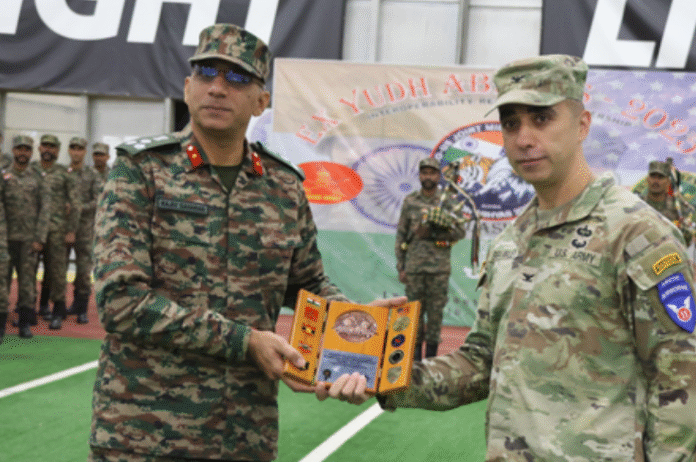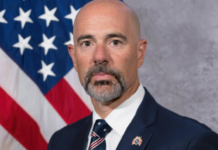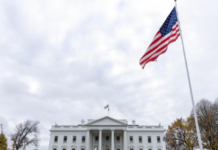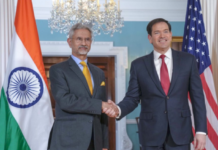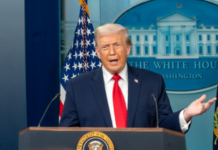WASHINGTON– Even as India and the United States navigate weeks of trade frictions, a former senior American official said defense cooperation remains one of the most resilient pillars of the bilateral relationship.
Vikram Singh, former Deputy Assistant Secretary of Defense for South and Southeast Asia, told a panel at the Hudson Institute on Wednesday that communication between the two governments has not broken down despite disputes.
“Even when you have problems, even as severe as you are seeing now, lines of communication have not broken down. The two sides continue to talk to each other,” Singh said. “We don’t have any dramatic freezing out. We have ended up now with a lot of enthusiasm among the war fighters for the partnership, a lot of enthusiasm among the political leadership for the partnership.”
The remarks came as Washington pressed ahead with new tariffs — including a 50 percent levy on Indian imports and a 25 percent penalty tied to New Delhi’s purchase of Russian oil. At the same time, both nations’ armies were wrapping up the 21st edition of Exercise Yudh Abhyas, a two-week joint training exercise in Alaska. The Indian Embassy in Washington described the drills as a “hallmark of the growing military-to-military interaction” consistent with the Comprehensive Global Strategic Partnership.
Singh also pointed to President Donald Trump’s personal rapport with Prime Minister Narendra Modi as another stabilizing factor. “I don’t think he ever said anything critical about Prime Minister Modi at all,” Singh said. “A moment of crisis can easily flip to a moment of opportunity. I’ve seen no indication from across the Department of Defense or State or others that there’s a turning away.”
Panelist Sameer Lalwani, a non-resident senior fellow at the Center for Strategic and Budgetary Assessments, argued that China’s growing military power is a central driver of U.S.–India defense ties. He cited the 2017 Doklam standoff and the Trump administration’s embrace of Great Power Competition with Beijing as key moments that cemented India’s role as a favored partner.
“The Trump administration declared we are in the era of Great Power Competition, which immediately makes India sort of a favored partner, both in public and private strategy documents. And simultaneously, India has one of its many face-offs with China in Doklam. And so, thanks a lot, China. They’ve really helped us out on this relationship,” Lalwani said.
Trump’s current term has brought a more complex mix of confrontation and diplomacy with Beijing. While tariffs have escalated beyond 50 percent, Trump has repeatedly highlighted his personal relationship with Chinese President Xi Jinping. Both sides this week announced a framework agreement on TikTok allowing the app to continue U.S. operations.
Still, Lalwani said the long-term trajectory remains adversarial. “You might get a trade deal here and there, but I still think the general expectation I have over the average or long term, the relationship with China is going to rest on a mean, and that mean is adversarial,” he said.
Singh agreed, noting that even if a trade deal were reached, the United States would still prioritize strengthening regional alliances, with India as a central partner. (Source: IANS)


